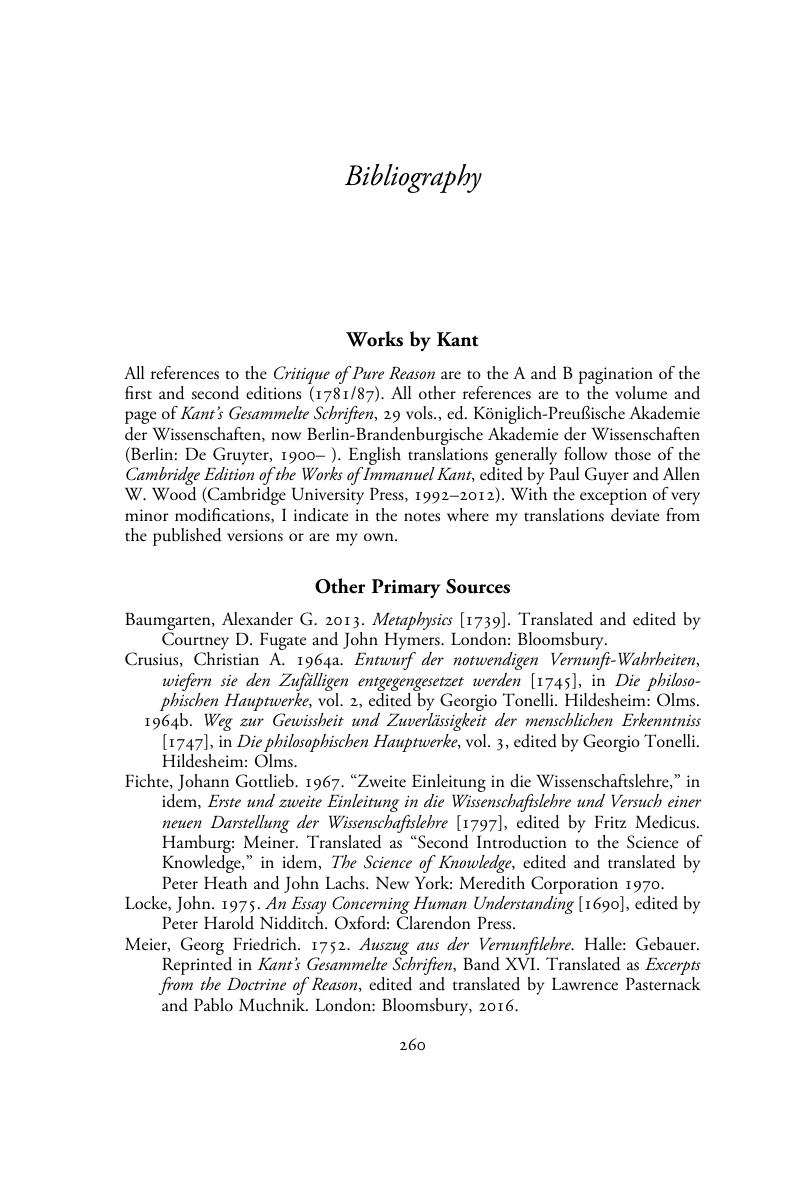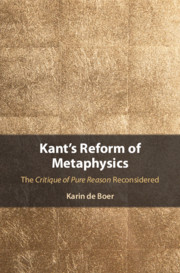Book contents
- Kant’s Reform of Metaphysics
- Kant’s Reform of Metaphysics
- Copyright page
- Contents
- Acknowledgments
- Abbreviations
- Introduction
- Chapter 1 Wolff, Crusius, and Kant
- Chapter 2 The “Thorny Paths of Critique”
- Chapter 3 Ontology, Metaphysics, and Transcendental Philosophy
- Chapter 4 Things in Themselves, Transcendental Objects, and Monads
- Chapter 5 The 1781 Transcendental Deduction of the Pure Concepts of the Understanding
- Chapter 6 The Schematism of the Pure Understanding
- Chapter 7 Transcendental Reflection
- Chapter 8 Kant’s Projected System of Pure Reason
- Conclusion
- Bibliography
- Index of Names
- Index of Subjects
- References
Bibliography
Published online by Cambridge University Press: 20 August 2020
- Kant’s Reform of Metaphysics
- Kant’s Reform of Metaphysics
- Copyright page
- Contents
- Acknowledgments
- Abbreviations
- Introduction
- Chapter 1 Wolff, Crusius, and Kant
- Chapter 2 The “Thorny Paths of Critique”
- Chapter 3 Ontology, Metaphysics, and Transcendental Philosophy
- Chapter 4 Things in Themselves, Transcendental Objects, and Monads
- Chapter 5 The 1781 Transcendental Deduction of the Pure Concepts of the Understanding
- Chapter 6 The Schematism of the Pure Understanding
- Chapter 7 Transcendental Reflection
- Chapter 8 Kant’s Projected System of Pure Reason
- Conclusion
- Bibliography
- Index of Names
- Index of Subjects
- References
Summary

- Type
- Chapter
- Information
- Kant's Reform of MetaphysicsThe <I>Critique of Pure Reason</I> Reconsidered, pp. 260 - 273Publisher: Cambridge University PressPrint publication year: 2020



